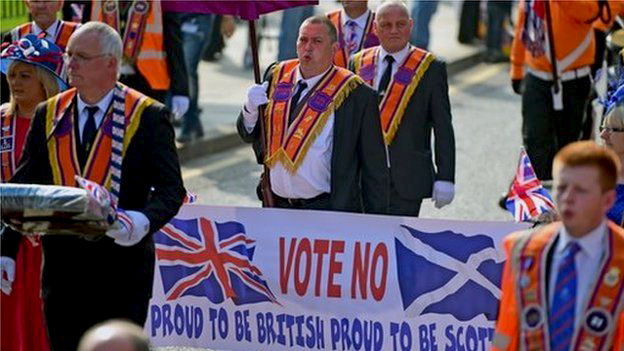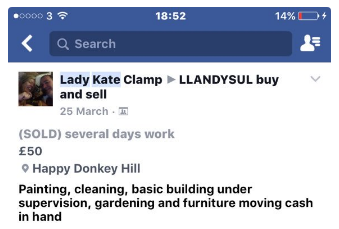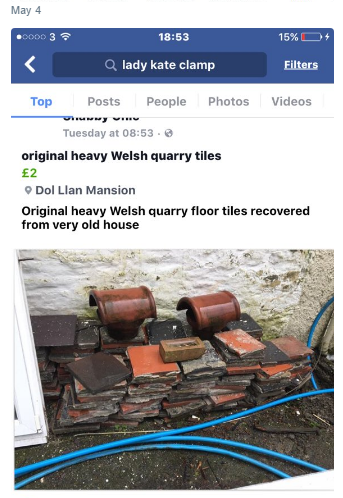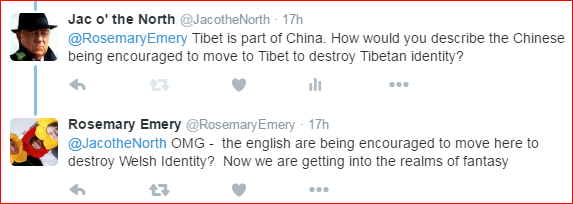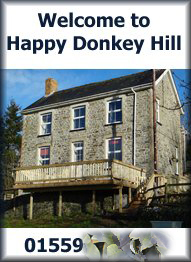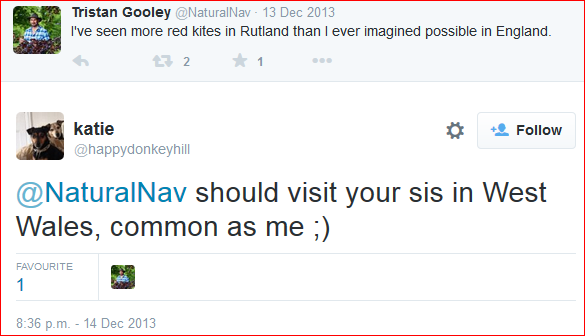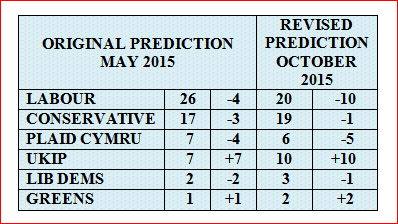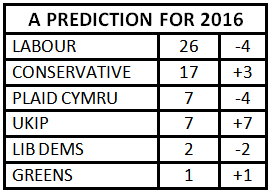Those of you who’ve read Cneifiwr’s latest post, about his canvassing experiences, will I’m sure have enjoyed him waxing lyrical about wrens and shimmering vistas, country lanes and tinkling rills . . . well you’ll get none of that fancy bucolic stuff here. This is the opinionated old git section of the Welsh blogosphere.
Last Thursday gave us what was perhaps the strangest election of my lifetime. Not just because of the result and the way the Tories lost the commanding lead they’d held at the start of the campaign, but also because of the combination of factors not present in earlier elections, specifically, the recent surge of the SNP, the influence of Brexit, UKIP and the realignment of that party’s deserting voters, and post-election, the entrance of the DUP. So let’s consider the bigger picture before looking at the results in Wales.
♦
NORTH OF THE BORDER
The Unionist parties and the London media are cock-a-hoop over the ‘defeat’ suffered by the SNP, but was it really such a defeat? In the 2010 general election the SNP won 6 seats out of a total of 59; in May 2015, following the independence referendum of September 2014, the party won 56 seats, gaining 50% of the vote (an increase of 30%). That was clearly a freak result, that was unlikely to ever be repeated.
On Thursday, support for the SNP was down to 36.9% and 35 seats, leaving it still the largest party, and by some distance. This falling off in support can be explained quite simply – independence and whether or not to have a second referendum is the issue in Scottish politics now. Those who want independence generally voted SNP, while those who are opposed to independence, or remain to be convinced, tended to vote for whoever had the best chance of defeating the SNP candidate. As a rule of thumb, tactical voting accounts for the gains made by Tories, Labour and Lib Dems.
It certainly explains what happened to Alex Salmond. The swing against him was 11.8%, but the swing to the Tory victor was 29%. What happened in Gordon was that the Lib Dems (treacherous bastards even to their own) deserted poor Dai Evans. Yet the Lib Dems still gained 3 seats where tactical voting benefited them.
Though I’m sad to see him go (if only temporarily) I enjoyed hearing Alex Salmond in his concession speech quote from that rousing Jacobite song, Bonnie Dundee with, ‘And tremble, false Whigs, in the midst of your glee, Ye hae no seen the last o’ my bonnets and me!’ Because those who think they’ve seen off the SNP threat, and put Salmond back in his box, should be warned against counting chickens.

Though it’s not always as simple as Unionists gathering behind the candidate most likely to thwart the devilish Nicola Sturgeon, Scottish politics is much more complex and nuanced nowadays, as this BBC piece makes clear. I was particularly struck by the contribution of John Dowson of Dumfries, a lifelong Labour voter, who wants independence, but was thinking of voting Tory because he also wants out of the EU. If he did indeed vote Tory, then his vote will be wrongly counted as a vote against independence.
Because that’s something else you have to understand about Scotland, not everybody who wants independence votes SNP. And how many SNP Brexiteers voted Tory for a hard Brexit, but will vote Yes in another referendum?
♦
OVER THE WATER
When I was a young man, before the Troubles, Northern Ireland was almost a one-party state, and the one party was the Ulster Unionist Party, the UUP. There was no other Unionist Party, UK parties did not contest seats over there, and through gerrymandering, intimidation and various forms of electoral fraud such as personation the Catholic voice was almost silenced. (The Unionist election day call to the faithful was, ‘Vote early, vote often’.)
With the Troubles came a widening divide between the two communities and a hardening of attitudes. One result was the creation in September 1971, by the Reverend Doctor Ian Kyle Paisley, of the Democratic Unionist Party (DUP). From its outset it was more hard-line on the Union and ‘terrorism’ than the rather more patrician UUP, and also more conservative on social issues. Hardly surprising given who’d formed it and its links with his Free Presbyterian Church of Ulster.
The polarisation reached its inevitable conclusion on Thursday when the UUP failed to win a single seat, as did its Nationalist counterpart, the Social Democratic and Labour Party. Sinn Féin won 7 seats, the DUP won 10, and the other seat, North Down, was held by Independent Unionist Lady Sylvia Hermon (née Paisley), widow of Sir Jack Hermon, one-time Chief Constable of the Royal Ulster Constabulary.
As I write this Theresa May has agreed a ‘confidence and supply’ agreement with the DUP rather than a formal coalition, but either way, for the Tories it’s stepping back into the nineteenth century, back to an age of John Bull nationalism, Fenians, the rejection of Darwinism, contempt for the undeserving poor and the stoning of poofters.
On the issues of today the DUP wants a hard Brexit but a soft border with the Republic. Talk about having your cake and eating it! So on that issue at least they’re in tune with the Conservatives.

Any co-operation with the DUP shows a) how desperate Theresa May is to hang on to power and b) how ignorant she is of modern Irish politics. For a start, any co-operation between the Tories and the DUP might threaten the Good Friday Agreement, because seeing Arlene Foster, the DUP leader, in Number 10, will raise fears on the Nationalist-Republican side that the UK Government is no longer impartial in its approach to Northern Ireland.
It should also be explained that the 7 Sinn Féin candidates elected will never be MPs because they refuse to take the Oath of Allegiance to the English monarch. This of course affects the arithmetic in the House of Commons and means that with 643 MPs The Conservatives need just 322 votes. So with the Tories having 318, the DUP 10, plus Lady Hermon tagging along, the ‘Understanding’ has 329 votes. What could possibly go wrong?
Well, playing the Orange Card or relying on Unionists may have paid dividends a hundred years or more ago, but in recent times it’s tended to go pear-shaped, as Sunny Jim found out in 1979, and in the twenty-first century the Conservatives getting too close to the DUP might even jeopardise 20 years of relative peace. This could all end in tears.
Given the close cultural, historical and other ties between Scotland and the north of Ireland one might have thought that their London masters entering a Faustian pact with the DUP would be welcomed by the Scottish Tories, but as might be expected, the DUP is against same-sex marriage, and the lesbian leader of the Scottish Tories, Ruth Davidson, is hoping to get married soon.
Woe! woe and thrice woe!
♦
DOWN BY ‘ERE
LABOUR, ETC
Already, a great deal of nonsense has been spouted by all sides involved on Thursday, so here’s my attempt to give an impartial view. Taking the bigger, Englandandwales picture, it’s obvious to everyone that Theresa May made a massive miscalculation.
The longer the campaign went on the more people turned away from her dalek-like performance and warmed to Jeremy Corbyn’s awkward sincerity. May cannot campaign, she even seems incapable of a genuine smile, or interacting with the Great Unwashed, and yet the Conservative campaign was almost all about her. Quite incredible.
The Prime Minister is clearly on borrowed time. She will never be allowed to lead another election campaign, so her survival might depend to some extent on the pact with the DUP working. One reason she’s still in place is that there’s no obvious replacement. But one will emerge.
That said, this was still a big defeat for Labour, and it’s absurd to celebrate as a victory what is really nothing more than relief at avoiding complete annihilation. Just check the numbers. The Tories may have got the worst possible kind of victory, but Theresa May is still in number 10 and Labour is still in opposition. Which from Labour’s perspective is probably the best outcome.
Because the Labour Party is still at war with itself, and we are now presented with the nauseating sight of former critics changing their position on Corbyn because the slimy, self-serving bastards know a meal ticket when they see one – and this bloke can keep them in a job. (For a number of them, he already has!)
But of course these moderates and Blairites are now even more uncomfortable in a party where the left is strengthened. Will an emboldened Momentum now embark on a campaign of deselections? Which makes you wonder what exactly anti-Corbyn Labour victors were celebrating in the wee small hours of Friday. It can only have been self-preservation and hanging on to a cushy, well-paid job with expenses galore.
Like these two in Port Talbot. Kinnock père hates Corbyn with a vengeance (he reminds him of Derek Hatton), yet here he is celebrating like his boy has scored the winning try against England. In reality, it’s a case of, ‘Tidy, mun, the Kinnock name will continue to shine, boy, one day you’ll be prime minister . . . like I nearly was . . . nearly . . . prime minister . . . Sheffield . . . oh, God! I need a drink’.

This picture is a celebration of personal and family ambition. The Labour Party and what it might achieve for the downtrodden masses is incidental or totally irrelevant, for in the case of the Kinnocks the party’s real purpose is to serve as a vehicle for dynastic ambition. Today’s Labour Party contains more chancers and careerists than at any time I can remember.
PLAID CYMRU
The headline figure is that Plaid Cymru fell back, its vote down 1.7% on 2015. By comparison, the Tories, who we are told were the losers on Thursday, saw their vote increase by 6.3%. Labour’s vote went up by 12.1%, making it clear that in Wales it was Labour that gained most of the former UKIP vote. It would appear that ‘Welsh’ Labour distancing itself from Corbyn paid dividends.
Yes, Plaid gained Ceredigion, but let’s put that victory, by just 104 votes, into perspective. Ceredigion is a seat held by the party at Assembly level, it has been previously held by the party at Westminster level, and was won by an impressive young local after the sitting Lib Dem, or his supporters, were caught telling porkies.
In Arfon, Plaid held on by the skin of its teeth, 92 votes to be exact. How much this result was influenced by the votes of English and other foreign students in Bangor is something we might learn later. Though I have to confess to asking myself many times,‘Who is Hywel Williams?’, because the political firmament remains unlit by his presence. (In fact, I often confuse him with Albert Owen, the Labour MP for Ynys Môn!)
In addition to Ceredigion there were four other seats where Plaid Cymru entertained hopes of success, these were: Ynys Môn, Llanelli, Rhondda and Blaenau Gwent. Here are the results:

The only comfort Plaid Cymru may be able to draw is that the party’s vote increased in Blaenau Gwent, but in last year’s Assembly election the same candidate, Nigel Copner, came within 650 votes of Labour minister Alun Davies. Furthermore, this is a volatile constituency, won with a handsome majority in 2005 by Independent Peter Law, the incumbent MP who’d left Labour over all-women shortlists.
Following Law’s death, the seat was held at a by-election in 2006 by Dai Davies. In the 2007 Assembly election Blaenau Gwent was won by Law’s widow, Trish, before returning to Labour in 2011. In last week’s election Nigel Copner was helped by Dai Davies.
So maybe there’s no comfort to be drawn from the result in Blaenau Gwent after all.
♦
After the smoke had cleared on Friday Plaid Cymru was back to square one, holding four rural seats where it relies on a socially conservative and largely Welsh-speaking support. It made no progress whatever in the urban and more anglicised areas that make up the greater part of the country. This is a party going nowhere.
Except, maybe, backwards. For in the case of Llanelli, this Westminster seat has been a target for Plaid Cymru since Carwyn James got 8,387 votes against Denzil Davies in 1970.
Then came the 1980s when the bright young things took over, ‘reaching out’ beyond Plaid’s core vote to all manner of minority groups, most of which didn’t give a toss about Wales. Much of this was due to Dafydd Elis Thomas . . . what became of him? But it laid the foundations for the party we see today.
Plaid Cymru’s message is more attuned to the youth vote, the Remainers, the ethnic minorities, of major English cities, than to post-industrial wastelands filled with angry and poorly educated white people who don’t give a toss about trans-gender issues or the latest advances in green technology. Plaid Cymru only gets away with this mis-targeting in the west due to its cultural appeal.
In 2007 Plaid Cymru had the chance to run the Assembly as the largest party in coalition with Conservatives and Liberal Democrats. The leftists and the wimmin rose up with shrieks of horror at the prospect of aligning themselves with the crypto-fascist, baby-eating Conservatives – and Plaid instead became Labour’s little helper in the One Wales Agreement.
Nothing’s changed, this sucking up to Labour goes on and on, I know that one Plaid politician was recently told to stop using the #redtories Twitter hashtag.
A few years before 2007, Plaid removed its most successful leader, Dafydd Wigley, in a squalid coup.
Though never a member myself, many tell me that Plaid Cymru undermined Cymuned, one of the most promising movements Wales has seen in recent decades, but today just a shadow of what it might have been.
Plaid Cymru is either a party making major strategic errors, or else this is a party that has been compromised. Either way, it’s of no further use to the Welsh nation. As things stand, Plaid Cymru is of more benefit to England than to Wales because it’s every colonialist’s dream of a ‘national’ party.
I often think that if I was running the secret state I’d want a party in Wales just like Plaid Cymru. A party that makes the occasional unimportant gains, can keep enough people enthused with the hope of ‘next time’, and, most importantly of all, act as a block on the emergence of a party that might actually threaten the Union.
Unless Plaid Cymru can reform itself into a truly Welsh party, appealing to the whole country, regarding all other parties as opponents, rather than potential partners, then the time has come for Plaid Cymru to stop wasting everybody’s time and leave the field to those with fresh ideas and a different approach.
♦ end ♦



